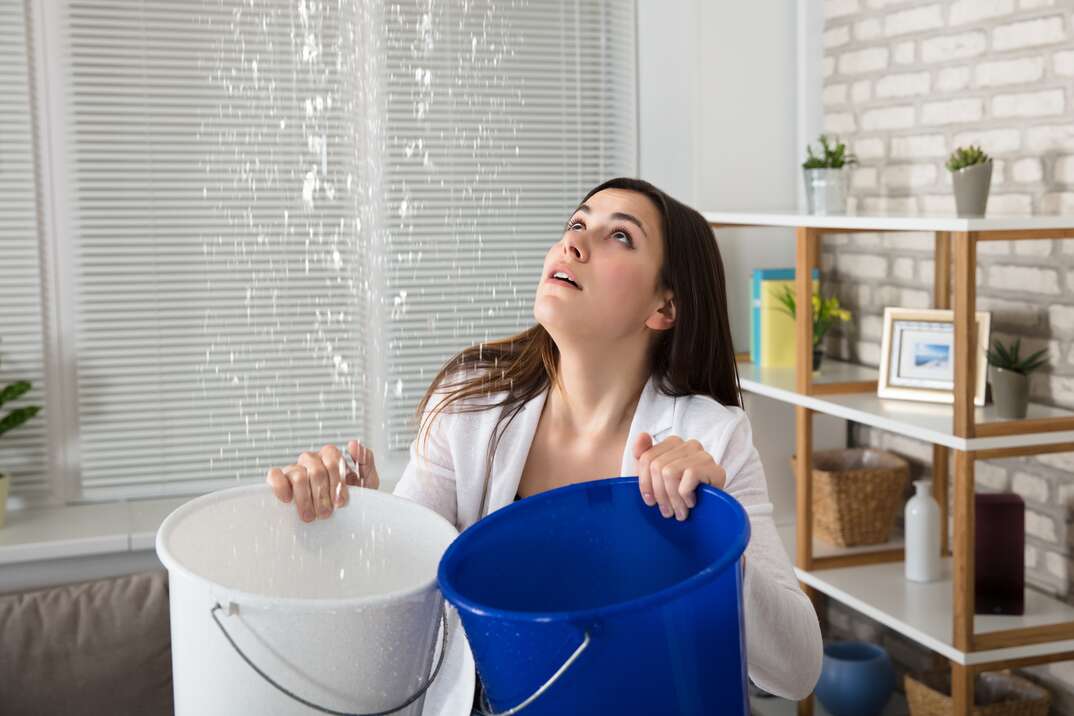- AppliancesElectriciansHVACLandscapingLocksmithPest ControlPlumbingRenovationRoofingT V RepairAll Home Improvement
- Car AccidentClass ActionCorporate LawCriminal DefenseDivorce LawEmployment LawFamily LawFinancial LawLegal AidMedical Injury LawyersMedical MalpracticeReal Estate LawWater Fire RestorationAll Legal
- InvestmentRetirementAll Finance
- Animal InsuranceAutoGeneral InsuranceHealth PolicyHome RentersAll Insurance
- DentalHealth SpecialistsAll Medical
- Animal CareVeterinaryAll Pets
- Auto GlassTowingAll Automotive
What's the Difference Between Flood Insurance and Water Damage Coverage?

Few things are more troubling to a homeowner than water damage. Quick to strike — with the potential to create lasting problems with everything from furnishings to the foundation — too much water is never a good thing for a property.
Read More Home Improvement Articles
Where the water comes from isn't necessarily a big concern for most homeowners — after all, damage from a burst pipe or a flood can create the same challenges in the end — but this isn't true for insurance companies. As some property owners are surprised to learn once it's too late, the source of water can make all the difference as far as coverage is concerned.
As a homeowner, damage from water is all the same, but insurance companies see things differently. As such, it's important to understand the differences in standard water damage vs. flood damage, or you may find yourself with an expensive problem to fix and the money for repairs coming out of your pocket.
In general, water damage refers to problems caused by water that originate within the home, such as overflowing toilets, pipes that burst or a leaky HVAC system. These kinds of problems can arise for many reasons, from bad luck to property owner error, but the end result is damage from water.
Flood damage, on the other hand, refers to damages associated with a natural disaster, such as a flash flood or hurricane. This can also include other flooding events, such as overflow from a rain control basin or when land surrounding a property isn't graded properly and runoff occurs.
While this may sound like a simple divide, it isn't always. For example, a storm with high winds that causes a leak in a roof would likely be categorized as water damage, even though a natural disaster is at fault, because the wind is the primary driver of the damage that occurred, not the water itself.
More Related Articles:
- How Much Does a Home Inspection Cost?
- 4 Tips for Hiring a General Contractor for Your Next Remodeling Project
- Should You Hire a Contractor or a Handyman?
- 5 Things to Look For When You're Hiring an Electrician
- What to Look for When Hiring an Exterminator
Does Insurance Cover Flood Damage?
Most standard home insurance policies don't cover flood damage. This may seem counterintuitive, as homeowner insurance is designed to protect against all major issues in the home, but as flooding isn't a very common event and damage can be very extensive, protection usually requires a separate policy.
Some areas of the country, such as those with frequent hurricanes, may require flood insurance with the purchase of a house, while in other areas, doing so is elective. Sometimes flood insurance can be a rider attached to home insurance, but not always.
Due to the severity of flood-related problems, the National Flood Insurance Program (NFIP) in the United States is managed by FEMA and comprises more than 50 insurance companies that offer flood-related policies. Even if you're in an area where flooding isn't common and insurance isn't required, buying a policy can be a smart idea.
Keep in mind that there can be a waiting period of up to 30 days before flood insurance goes into effect. Therefore, it's important to act as soon as possible if you want to keep yourself safe before a major flooding event, such as hurricane season.
In most cases, water damage is covered by standard home insurance policies. This is because water problems, such as burst pipes, can occur in all kinds of ways, including things that come up naturally through the course of living. While water damage can certainly cause serious problems, it doesn't often reach the level of flooding problems, creating a lower-risk form of coverage for insurance companies to provide. However, because water damage vs. flood damage isn't categorized the same way, it's easy to be caught unaware should a hurricane send water pouring into your basement.
Keeping your home covered is one of the most important steps you can take as a homeowner; without a safety net, it's easy to find yourself facing tens or even hundreds of thousands of dollars in repairs in the blink of an eye. Rather than just assuming your home will be protected from major problems, be sure to contact your insurance company with any questions you have about coverage and water damage claims.
Elocal Editorial Content is for educational and entertainment purposes only. Editorial Content should not be used as a substitute for advice from a licensed professional in your state reviewing your issue. Systems, equipment, issues and circumstances vary. Follow the manufacturer's safety precautions. The opinions, beliefs and viewpoints expressed by the eLocal Editorial Team and other third-party content providers do not necessarily reflect the opinions, beliefs and viewpoints of eLocal or its affiliate companies. Use of the Blog is subject to the
Website Terms and Conditions.The eLocal Editorial Team operates independently of eLocal USA's marketing and sales decisions.



